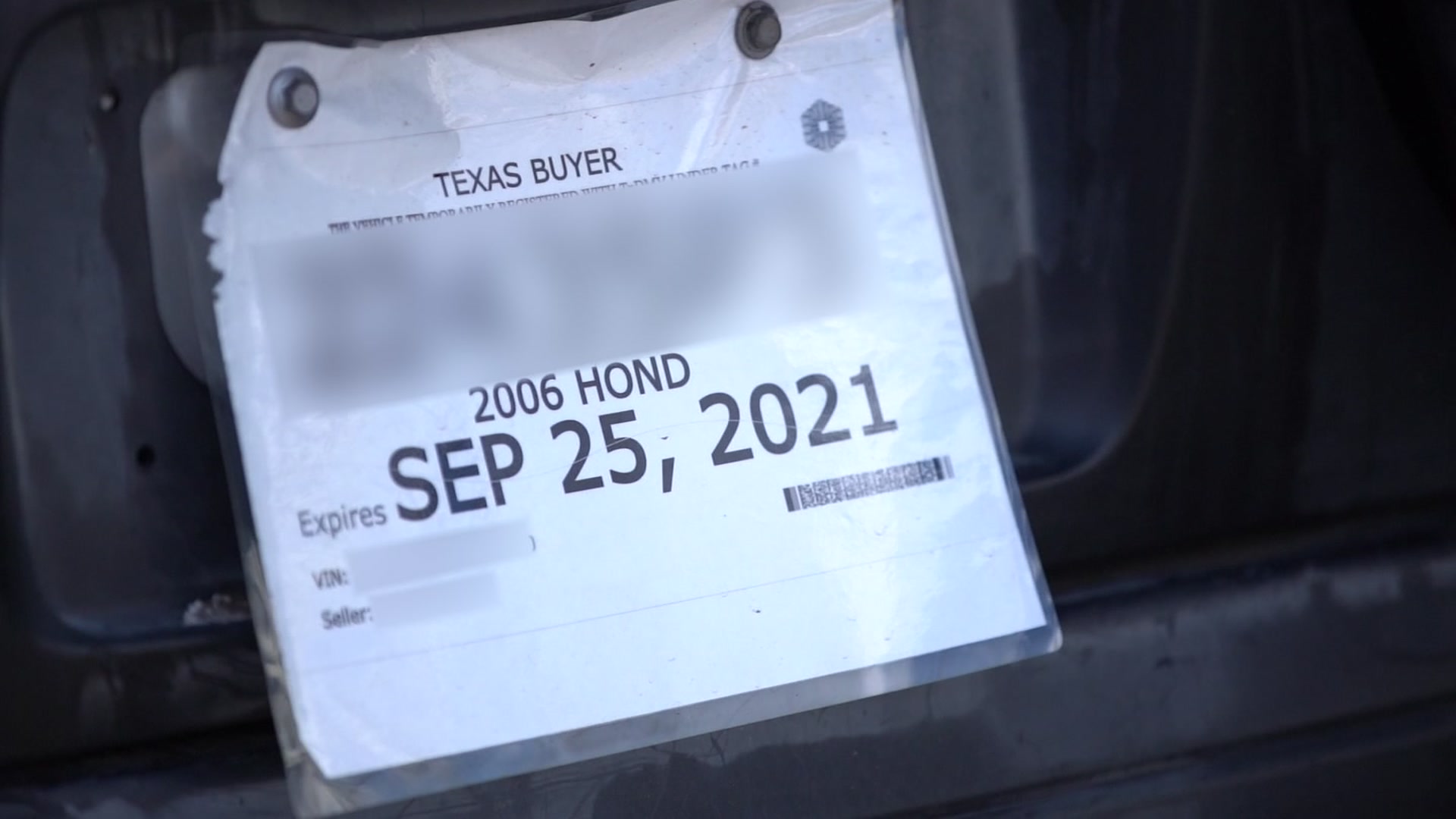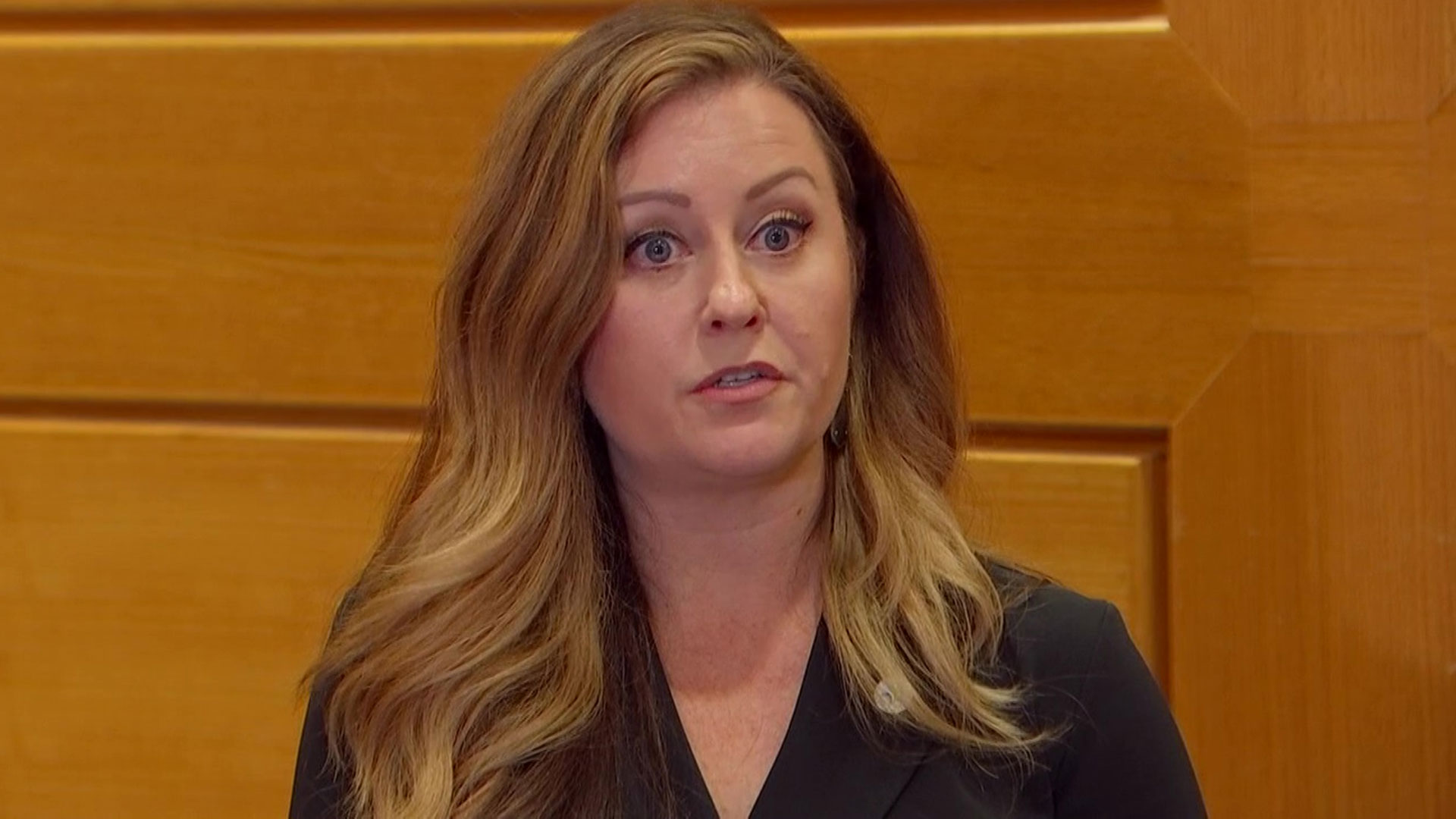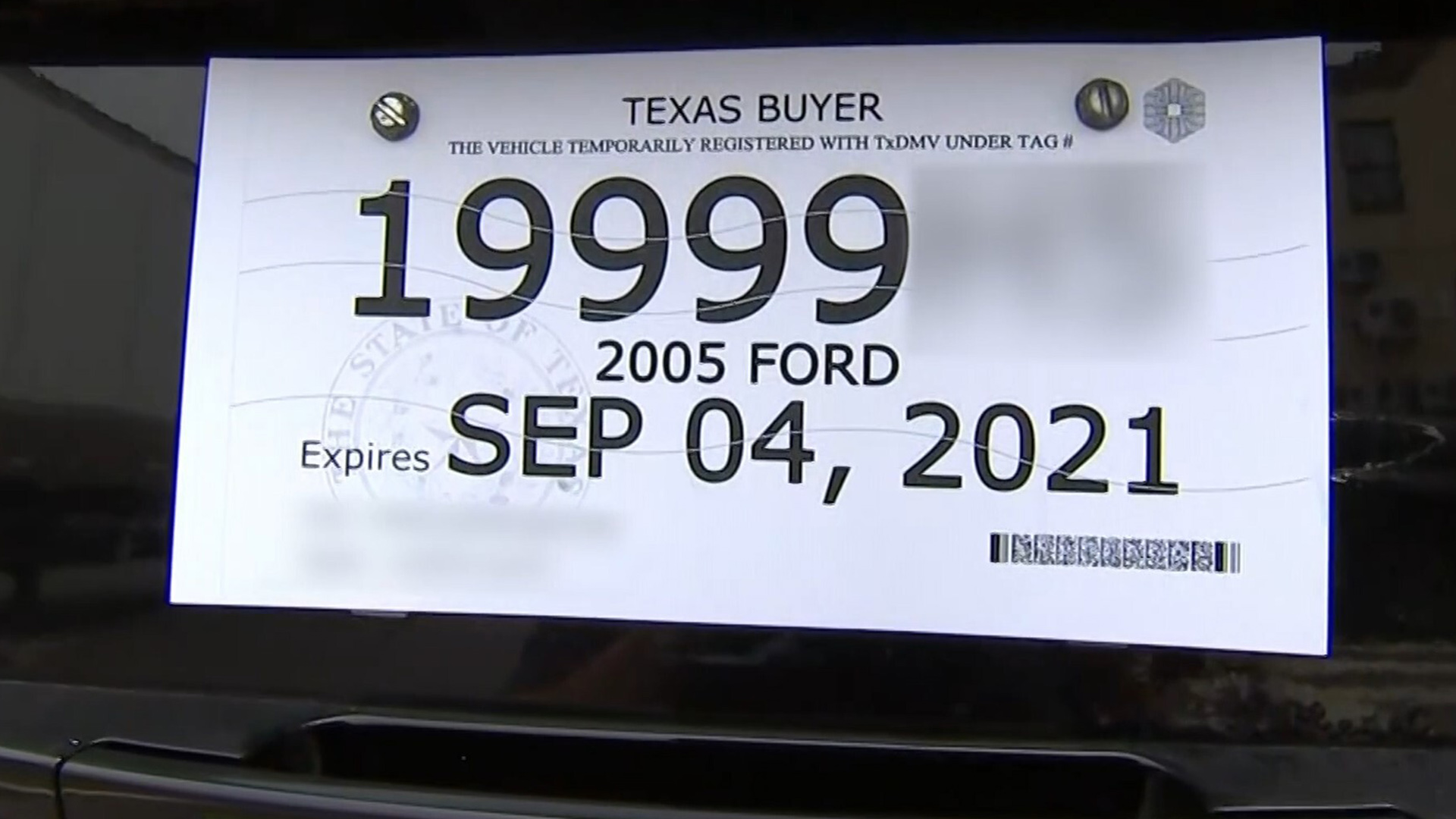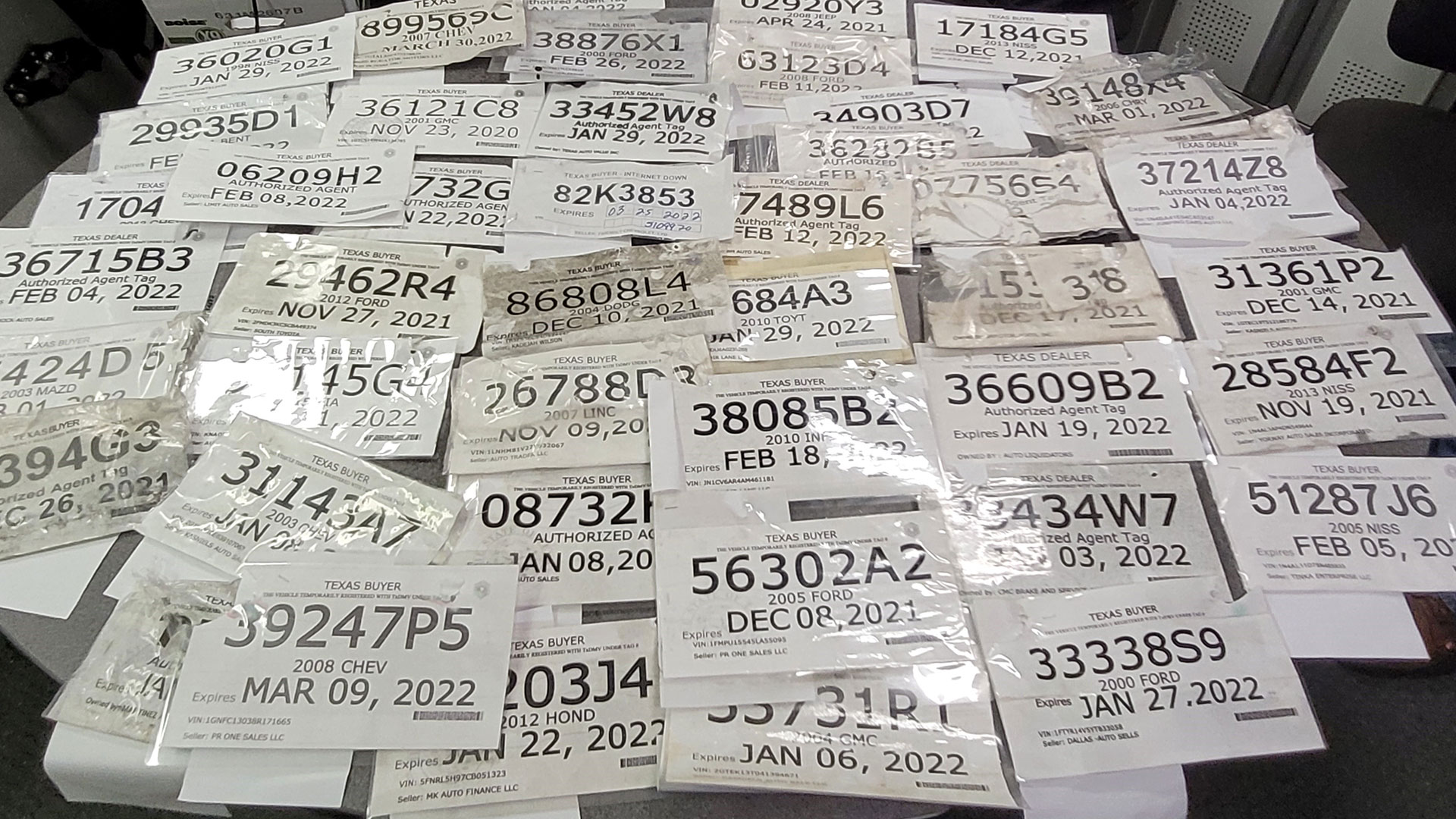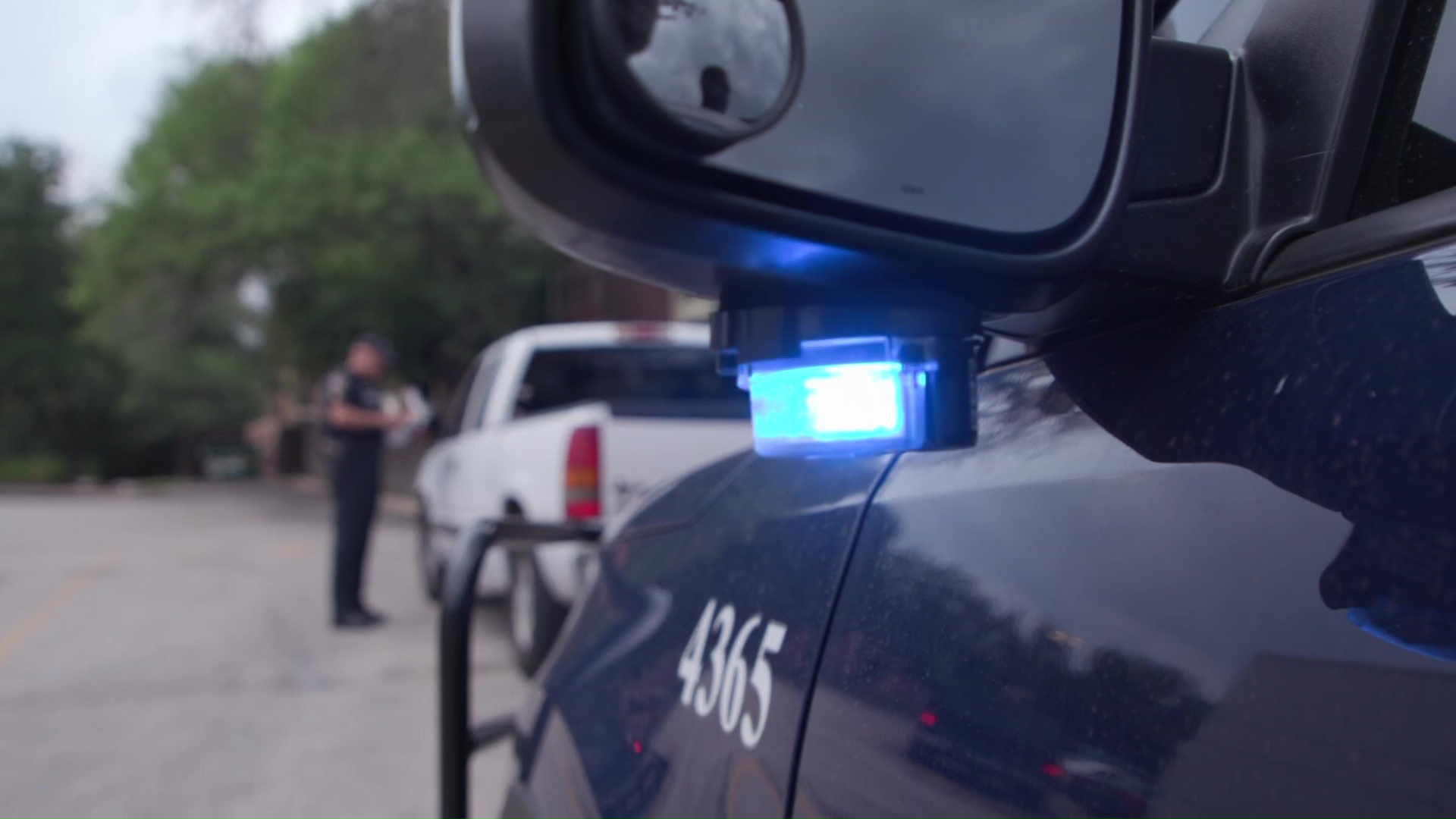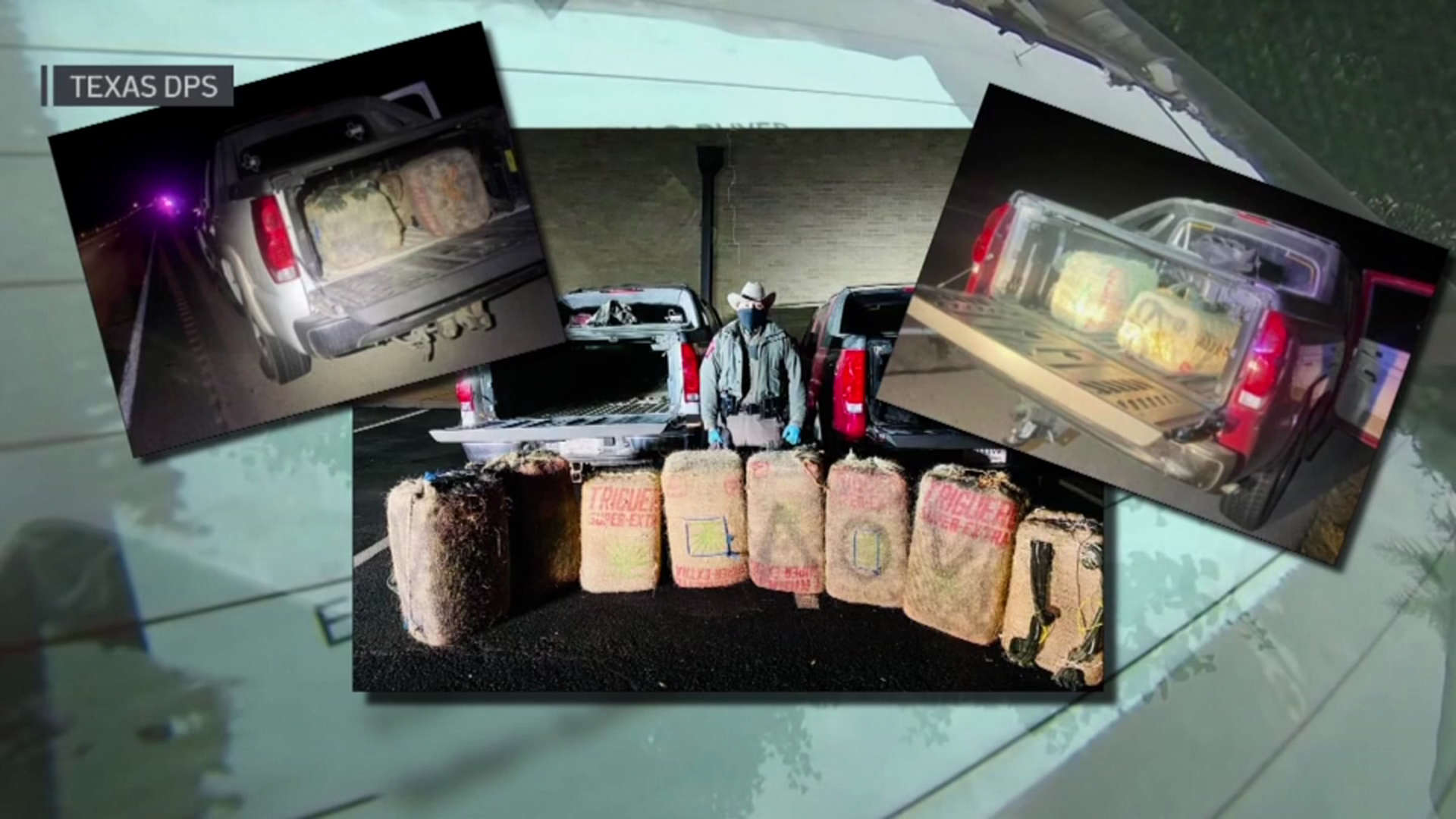The top law enforcement agency that investigates fraudulent Texas tags reports big signs of progress in the fight to stop the bad guys who have infiltrated the Texas DMV’s system and turned temporary license plates into a huge black-market enterprise.
At a TxDMV board meeting in Austin Thursday, a detective with the Travis County Constable’s Office told the board he has seen a significant decline in the number of tags issued by a group of small car dealers he is investigating, suspected of printing massive numbers of tags and selling them for profits.
“It used to be 25,000 tags each week from these criminal dealers, 25,000 a week, we are now seeing numbers in the hundreds,” said Cpl. Mike Bradburn, Travis County Constables, Precinct 3.
Paper Tag Nation
Get DFW local news, weather forecasts and entertainment stories to your inbox. Sign up for NBC DFW newsletters.
Bradburn credited new rules the DMV board approved two weeks ago, allowing staff to immediately shut down dealers suspected of fraud by denying them access to the system that allows them to print tags.
NBC 5 Investigates blew the whistle on the scale of the fraud in November, showing how crooks have been able to get car dealer licenses and turn paper tags into a $200 million illicit business.
Our reports exposed DMV records showing how some small dealers printed hundreds of thousands of tags before the DMV could stop them.
But in the months since NBC 5's reports began, there's been new urgency from the DMV board.
“There's been a level of frustration where we weren't able to move forward with the kind of speed that we are now,” said Charles Bacarisse, chairman of the TxDMV board, in an interview with NBC 5 Investigates.
Bacarisse promises to aggressively attack the problem with help from new leadership after DMV executive director Whitney Brewster resigned earlier this week.
“I think that the board was ready to move in a new direction. and I think that they are now feeling like the agency has really gotten up under this issue,” Bacarisse told NBC 5.
Paper Tag Nation
But police warned they need more help, because as the DMV adapts, so do the bad guys.
Instead of obtaining one car dealer license to print hundreds of thousands of tags, investigators now believe organized criminal groups are using multiple dealer licenses to sell tags in smaller numbers and to avoid drawing attention.
“I personally think we are going to see a lot of low-level dealers pop up because IP addresses show they have a lot of licenses right now,” Bradburn said.
Law enforcement officials want the DMV to fingerprint dealers to stop crooks from getting dealer's licenses in the first place and to track down bad actors who slip through the cracks.
On Thursday, the board asked staff to accelerate a fingerprinting plan, hoping to approve it as early as this spring.
Bacarisse and other board members spoke during the meeting of trying to move as fast as they can, without making mistakes, and about prioritizing fingerprinting at the top of the list of efforts to tackle the problem.
As NBC 5 Investigates has reported, the DMV has not thoroughly vetted car dealer license applicants, allowing even people using stolen identities to get dealer licenses and then access the state’s electronic tag system.
DMV staff is also developing plans to hire more inspectors to check car dealerships before they open, to make sure they are not shell companies set up to sell tags.
On Thursday Bacarisse said he plans to ask the legislature for more tools to tackle the problem.
“I think we're going to come to them - that legislative leadership - and ask them to help us continue to fix the challenges,” Bacarisse said.
He said he also hopes that law enforcement will soon have real-time access to the state’s eTag system. Officers have complained that it sometimes takes them days to get information from the DMV if they are investigating a car with a paper tag, involved in a crime, and need to locate information about the dealer that printed the tag.
Late Thursday, the DMV board named Daniel Avitia as the agency’s new interim executive director. Avitia has served as a deputy executive director. Bacarisse said in an interview that Avitia has the enforcement-related experience that should help the agency deal with its top priority, at the moment, curbing the sale of fraudulent tags.
Shelly Mellott who was named interim executive director on Monday, after Brewster’s departure, will stay on at the DMV in her role as a deputy executive director, an agency spokesman said.
PREVIOUS REPORTS
- June 12, 2023 - Gov. Abbott signs law eliminating paper license plates in Texas
- May 24, 2023 - Bill to Eliminate Paper License Plates in Texas Passes Texas Senate
- March 27, 2023 - Texas DMV's New Paper Tag Design Easily Counterfeited, Police Say
- Nov. 17, 2022 - Texas DMV Redesigns Paper License Tags to Include New Security Features
- Nov. 15, 2022 - Police Searching for Paper Tagged 'Ghost Car' in Deadly Grand Prairie Chase
- June 1, 2022 - Police Make Bogus Tag Bust Tied to Social Media Ads
- May 18, 2022 - TxDMV Names New Executive Director Amid Paper Tag Crisis
- May 17, 2022 - Vehicle Used in Dallas Salon Shooting Had Paper Tag
- May 12, 2022 - Ads for Fake Tags Persist, Despite Facebook, TxDMV Efforts
- May 4, 2022 - Texas' Paper Tag Problem Compounded by Small Dealers Misusing Them
- May 3, 2022 - Dallas Police Shut Down Accused Fake Paper Tag Dealer
- April 26, 2022 - Texas House Set to Hold Paper Tag Hearings
- April 14, 2022 - Texas DMV Cracks Down on Dealers Selling Temporary Paper Tags
- April 13, 2022 - TxDMV Closes Inspection Loophole That Put Unsafe Cars on Roads
- April 12, 2022 - Dallas Police Go Undercover to Fight Illegal Paper Tags
- April 7, 2022 - Police Warn of Fake Paper Tags Used to Cheat Car Buyers
- April 5, 2022 - Texas Senate Will Investigate Illegal Paper Tag Crimes, Smuggling
- March 9, 2022 - Texas Paper Tag Crime Danger Extends Nationwide
- March 5, 2022 - Texas House Will Hold Hearings on Paper Tag Mess
- Feb. 28, 2022 - License to Smuggle: Drug Cartels and Human Smugglers Use Paper Texas Tags to Evade
- Feb. 15, 2022 - Fort Worth Police Announce Special Operation Targeting Paper Tags
- Feb. 14, 2022 -- Crash Victim's Parents Want More Cops to Police Paper Tag Fraud
- Feb. 13, 2022 - More Funding Need to Fight Criminals Using Bogus Paper Tags: Police
- Feb. 10, 2022 - Police Report Drop in Fraudulent Tags But Warn Crooks Are Adapting
- Feb. 9, 2022 - Texas DMV Shuts Down Six More Dealers Suspected of Selling Paper License Tags
- Feb. 7, 2022 - TxDMV Director Resigns Amidst Paper Tag Mess
- Jan. 27, 2022 - TxDMV Takes Emergency Action to Keep Crooks From Selling Paper Tags
- Jan. 21, 2022 - Dallas Police Operation Targets Fraudulent Paper Tags
- Jan. 17, 2022 - Recording Shows Police Warned TxDMV of Paper Tag Security Flaw Years Ago
- Dec. 16, 2021 - DMV Committee Recommends Fingerprinting Some Dealers to Slow Paper Tag Fraud
- Dec. 14, 2021 - Texas House Transportation Chair Vows to Stop Paper Tag Fraud
- Dec. 6, 2021 - Texas DMV Boss Deflects Blame for Paper Tag Debacle
- Nov. 23, 2021 - Illegal Paper Tags Costing Texas Taxpayers and Toll Roads Millions
- Nov. 10, 2021 - Suspected Paper Tag Peddler Shut Down Tuesday, Reopens Wednesday: Investigators
- Nov. 8, 2021 - How Texas Paper Tags Became a $200M Criminal Enterprise: NBC 5 Investigates

